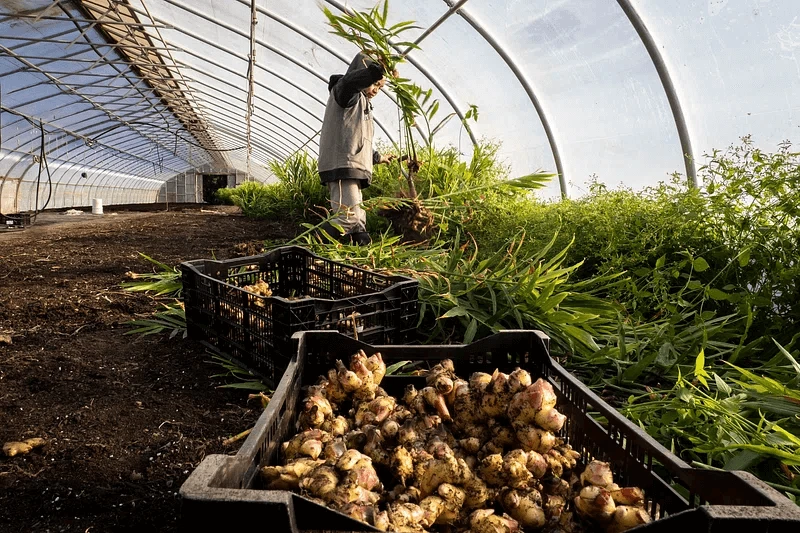Study: Organic farming produces less food than conventional. How huge is this yield gap?
Study: Organic farming produces less food than conventional. How huge is this yield gap?


The productivity of organic farming systems and their capacity to address the global food demand of a rapidly increasing population has been debated. Its popularity has amplified among consumers and the progressive global market (Badgley, 2007; Halberg et al., 2005; Trewavas, 2001; Stanhill, 1990). Incidentally, the claimed benefits of organic farming have been contested by Stanhill (1990) and Trewavas (2001), who criticized that organic farming produces lower yield and requires more production area to generate the same amount of food as conventional farms, further exacerbating deforestation and biodiversity loss, thus diminishing its environmental benefits.
In one of the early meta-analyses that compared the yields of the two farming systems, Seufert et al. (2012) reported lower yields from organic farming than those from conventional farming. Furthermore, it emphasized that differences in yield are highly contextual to system and site characteristics. Notably, they reported 5% lower yields in organic compared to conventional systems in rain-fed legumes and perennials on weak-acidic to weak-alkaline soils, 13% lower yields when best organic practices were applied, and 34% lower yields when the two farming systems were most comparable. They also observed that nitrogen (N) availability was a major yield-limiting factor in organic systems. This comparative study on yield was subsequently followed by a meta-analysis conducted by Knapp and van der Heijden (2018), who reported a 15% reduction in temporal yield stability in organic farming compared to that of conventional farming.
This is an excerpt. Read the original post here

 | Videos | More... |

Video: Nuclear energy will destroy us? Global warming is an existential threat? Chemicals are massacring bees? Donate to the Green Industrial Complex!
 | Bees & Pollinators | More... |

GLP podcast: Science journalism is a mess. Here’s how to fix it

Mosquito massacre: Can we safely tackle malaria with a CRISPR gene drive?

Are we facing an ‘Insect Apocalypse’ caused by ‘intensive, industrial’ farming and agricultural chemicals? The media say yes; Science says ‘no’
 | Infographics | More... |

Infographic: Global regulatory and health research agencies on whether glyphosate causes cancer
 | GMO FAQs | More... |

Why is there controversy over GMO foods but not GMO drugs?

How are GMOs labeled around the world?

How does genetic engineering differ from conventional breeding?
 | GLP Profiles | More... |

Alex Jones: Right-wing conspiracy theorist stokes fear of GMOs, pesticides to sell ‘health supplements’




 Viewpoint — Fact checking MAHA mythmakers: How wellness influencers and RFK, Jr. undermine American science and health
Viewpoint — Fact checking MAHA mythmakers: How wellness influencers and RFK, Jr. undermine American science and health Viewpoint: Video — Big Solar is gobbling up productive agricultural land and hurting farmers yet providing little energy or sustainabilty gains
Viewpoint: Video — Big Solar is gobbling up productive agricultural land and hurting farmers yet providing little energy or sustainabilty gains Fighting deforestation with CO2: Biotechnology breakthrough creates sustainable palm oil alternative for cosmetics
Fighting deforestation with CO2: Biotechnology breakthrough creates sustainable palm oil alternative for cosmetics Trust issues: What happens when therapists use ChatGPT?
Trust issues: What happens when therapists use ChatGPT? 30-year-old tomato line shows genetic resistance to devastating virus
30-year-old tomato line shows genetic resistance to devastating virus California, Washington, Oregon forge immunization alliance to safeguard vaccine access against federal undermining
California, Washington, Oregon forge immunization alliance to safeguard vaccine access against federal undermining The free-range chicken dilemma: Better for birds, but with substantial costs
The free-range chicken dilemma: Better for birds, but with substantial costs ‘You have to treat the brain first’: Rethinking chronic pain with Sanjay Gupta
‘You have to treat the brain first’: Rethinking chronic pain with Sanjay Gupta
